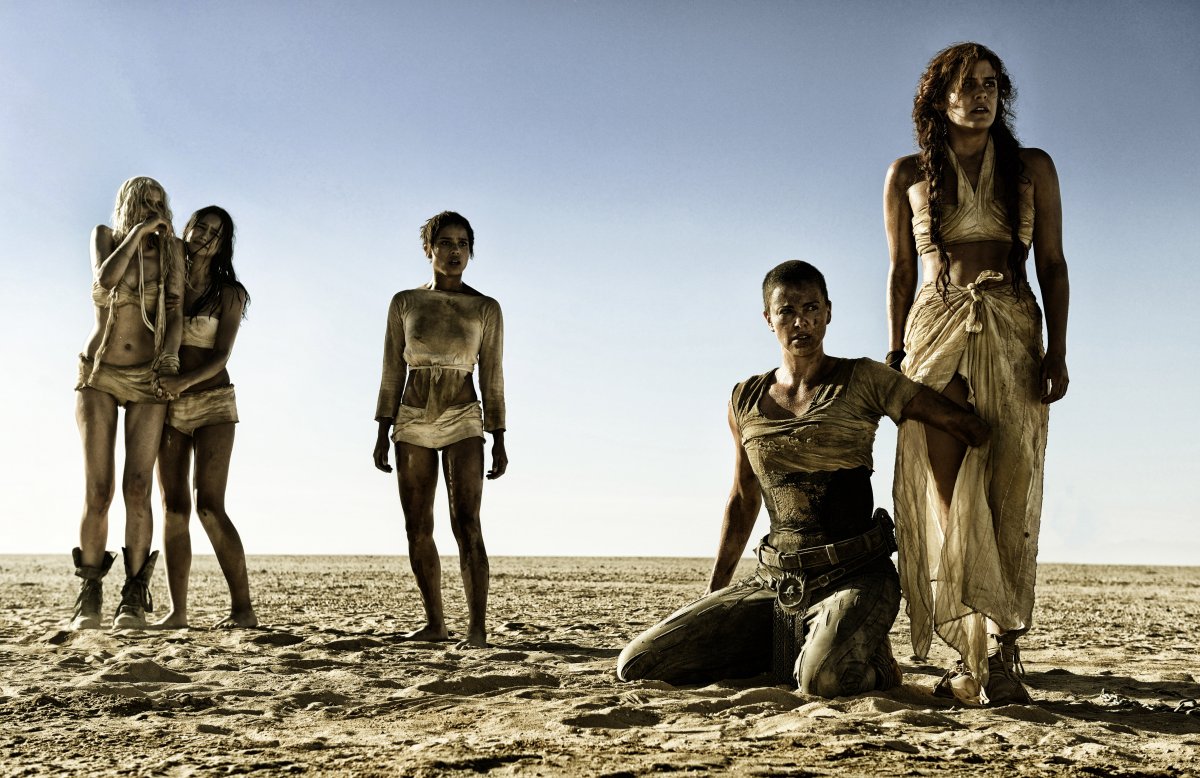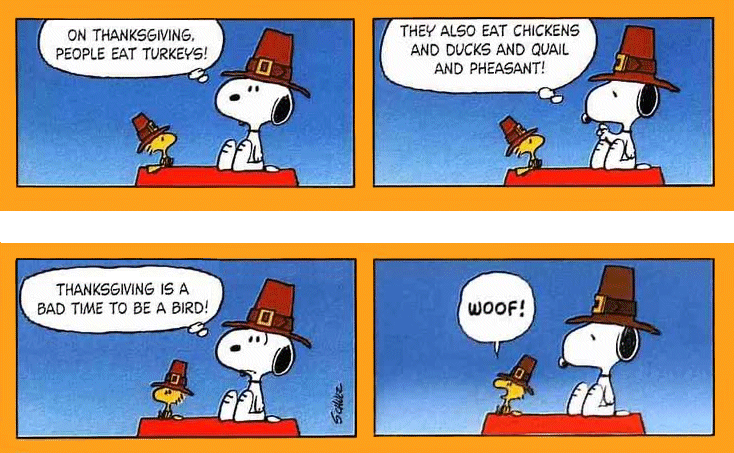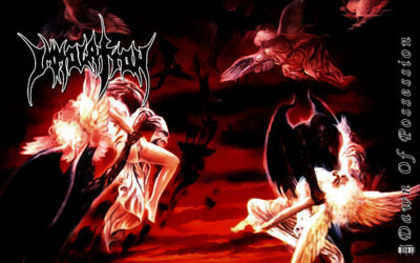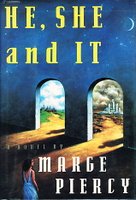
This first ran at CiCO3.
__________
This posts stems from a conversation with Kyle Johnson after we watched Mad Max: Fury Road together. Thanks to Linda Quiquivix , Zoé Samudzi and William Copeland for feedback on the idea and draft to help make it vaguely coherent. In thinking about worlds I leaned heavily on Frantz Fanon’s Wretched of the Earth and Frank Wilderson’s Red, White and Black even where not cited directly. None of the above can be blamed for what follows. After completing the draft a couple of friends put me onto this great recent CBC conversation which also covers parts of what is below. Special thanks to Cass Chen who was a wonderful friend, host and conversationalist while I scribbled.
George Miller’s 2015 film Mad Max: Fury Road takes place in a post-apocalyptic Australia. Like most apocalypse/post-apocalyptic stories Fury Road comments on the present through envisioning a dystopic future. The film opens with news clips framing the violence to follow as descended from resource wars and global warming. Resource extraction and climate change are ready topics for exploring the end of the world and it is no surprise to find them as common topics for apocalyptic storytelling in cinema, novels, television and comic books. In settler colonies these stories comment upon today’s problems while neglecting to mention that another apocalypse, one suffered by the indigenous population, pre-dates the story. Exploring post-apocalyptic storytelling with this in mind challenges settler colonial normativity and further opens up the world’s end to decolonizing visions.
Ending Othered Worlds
>Fury Road, Brian K. Vaughn & Pia Guerra’s comic book Y: The Last Man and Robert Rodat’s tv series Falling Skies all offer different causes to the apocalypse. Fury Road is unspecific but points towards ecological destruction through climate change and resource wars. Y: The Last Man‘s apocalypse is an unspecified illness or curse that simultaneously kills all the mammals with a Y chromosome (in an unproduced script, Vaughn lays the blame with a U.S. biological weapons attack on China). Falling Skies‘s end of the world comes from extraterrestrial invasion.
Fury Road further comments on climate change and monopolization of resources as a means of centralizing authoritarian, patriarchal power. It follows a group of people through a mostly empty wasteland as they seek the “green place” while they are hunted by those who control the resources. Y: The Last Man narrates Agent 355 and Dr. Allison Mann as they seek to find a cause and cure for the plague that killed all terrestrial mammals with the Y chromosome but for Yorick Brown and his monkey Ampersand. The authors focus on patriarchy, Israeli militarism and market violence. While it is is a global story, it starts in the United States and most of its key plots points take place in three settler colonies, the United States, Israel and Australia, before departing to Japan and France later on. Falling Skies looks at the Second Massachusetts, an irregular militia comprised of survivors of the extraterrestrial Espheni conquest that killed 90% of Earth’s human population as they seek to overthrow Espheni rule and restore the United States. Falling Skies affirms American exceptionalism, laments how the U.S. strayed from the perceived ideals of early republic and takes a geocentric view of the universe in its firmly conservative critique of the present.
These stories offer three different critiques of the present from three different political views and are produced in three different mediums in two different settler colonies. Yet all are representative of a genre of post-apocalyptic storytelling that does not contemplate that the lost U.S. and Australian societies are premised upon settler genocides against the native populations. The closest any of the three comes and the closest the overwhelming preponderance of the genre come is when Y: The Last Man briefly discusses Israeli civil disobedience against Israeli bulldozing of Palestinian houses as part of developing the Israeli character Alter. One notable exception is Mel Gibson’s film Apocalypto which engages a pending colonial apocalypse only to justify it. Another is District 9 where some references are made yet are mediated by the white South African hero.
Settler colonialism, the establishment of the stories’ lost worlds, is an anti-native apocalypse and, in the United States, Canada, South Africa, Brazil and Rhodesia, also an anti-Black apocalypse. The racializations of Black and native are mostly different but were simultaneously constructed through the same colonizing events. Both are products of settler colonialism. Settler colonialism builds the settler’s world – the anti-Black world – by destroying the native world and does so in a 1:1 ratio. Every acre created of coastal British/American Virginia is one acre less of Powhatan Tsenacommacah. Every dunam of Israel is one less dunam of Palestine. Settler colonialism through eliminating sovereignties and populations and creating regimes of gratuitous violence brings about the end of a world. It is sometimes even named as such as when Palestinians refer to the accelerated 1947-1949 period of Zionist ethnic cleansing and the establishment of the Israeli settler state as the Nakba (‘catastrophe’).
That we settlers comprise an anti-native apocalypse means that all our cultural production is apocalyptic, is the product of an ongoing apocalypse, including post-apocalyptic visions. John Grisham’s The Firm is an apocalyptic novel of legal corruption. Miley Cyrus’ “Wrecking Ball” is an unrequited love anthem of the apocalypse. Strictly Ballroom is a film about apocalyptic cross-cultural and cross-class ballroom dancing and romance. Almost all of Danielle Steel’s opus are apocalyptic love story books. Only Miley Cyrus’ career of those four actually feels like a sign of the apocalypse but all are inherently apocalyptic as products of settler colonialism. What the intended post-apocalyptic stories Fury Road, Y: The Last Man and Falling Skies unknowingly narrate is a prior apocalypse experiencing an apocalypse itself, the apocalypse’s apocalypse. The destruction of the settler colony provides the post-apocalyptic wasteland the protagonists navigate.
Elizabeth Povinelli describes settler normativity as the “organization of sociality on the basis of the naturalness of a civilizational displacement.” Alternately put, anti-native genocide, quashing of native sovereignties and, in some settler colonies, African slavery are the fabrics that weave together and underline all settler colonial discourse and relations. Settler everyday life is the anti-native and anti-Black apocalypse but for we settlers, it is just life. In this read Furiosa and Max are settler revolutionaries fighting Immortan Joe and the settler capitalists over control of stolen Aborigine land and resources. This is why it is unsurprising that Falling Skies and Y: The Last Man both fail to engage the anti-native apocalypse despite making numerous references to the early U.S. republic, a time when even normative settler discourse knows (but always remembers to forget) that Indian Removal programs were aggressively underway in some way, shape or form.
It is hard to imagine dystopic settler stories being otherwise for settler colonialism, like all organizations of power, builds the world it inhabits. In settler colonialism’s world settler colonialism – the anti-native and anti-Black apocalypses – is near impossible to see as it is our very frame of reference. A challenging thing about normativity is it’s paradigm paradox: From what frame of reference can we observe our frame of reference? When settlers imagine the end of the world then, we imagine it as synonymous with the end of the planet or species and not the end of settler colonialism’s world. But stories consciously narrating the apocalypse’s apocalypse could describe the end of that world. They can offer a new frame of reference and play a role in subverting and disrupting settler colonial power and discourse.
The World is Ending! Hooray!
Settler storytellers explore all kinds of fascinating, entertaining and illuminating scenarios to describe the end of the world. The Terminator and The Matrix stories look to the artificial intelligence singularity. Deep Impact ends part of the world with a comet collision. The Walking Dead comic book, tv series and a long-running series of George Romero’s …of the Dead films narrate a zombie apocalypse. The Wayward Pines book trilogy and tv series look at apocalypse through divergent evolution and On the Beach‘s apocalypse happens through nuclear war. None of the above reflect on the anti-native and anti-Black apocalypses.
Potentially even non-anthropocentric ones can be told. For example there is Vitamin Z – a yet to be made film documenting the multiyear boon in slow-moving, uncoordinated, easily obtainable, though quite bitey, prey for carnivores and scavengers that follows the zombie apocalypse and restores their populations to pre-capitalist/pre-colonial population levels. I hope Keith David or David Attenborough is available to narrate!
But what about when the end of the world is the apocalypse’s apocalypse? Frank Wilderson notes that, “The Slave needs freedom from the Human race, freedom from the world. The Slave requires gratuitous freedom.” Indeed, settler colonialism’s world of dispossession and gratuitous violence not only can end, but should. Stories of the end of this particular world need not be burnt skies and genocide. In narrating the end of an apocalypse they may well tell the opposite: clean air, vitality and an end to gratuitous violence and suffering. The end of settler colonialism’s world can be sunshine and blessings, little children laughing and singing silly songs, lovers dancing or any other beautiful thing. These are legit post-apocalyptic visions when describing an apocalypse happening to a prior apocalypse when combined with Black and native liberation. So are ones less polarly optimistic or romantic.
The material world stories of the whole or partial end of settler rule in Zimbabwe, Liberia and South Africa are decidedly complicated and frequently tragic. Settler colonialism is not the only wronging world in play as Black feminism’s intersectional resistance teaches. Yet stories consciously telling the apocalypse’s apocalypse can offer a discursive break, a frame of reference separate from settler colonialism’s dispossession and gratuitous violence. As Frantz Fanon wrote, “To break up the colonial world does not mean that after the frontiers have been abolished lines of communication will be set up between the two [colonial and decolonized] zones. The destruction of the colonial world is no more and no less than the abolition of one zone, its burial in the depths of the earth.” Stories telling the end of this world can be part of the shovel.
None of this is to argue that post-apocalyptic and apocalyptic stories cannot be robot apocalypses, nuclear holocausts or extraterrestrial invasions. They are frequently insightful, critical, imaginative and even beautiful. But such visions can still adopt a frame of reference not dependent upon settler colonialism’s dispossession and gratuitous violence and recognize that the anti-native and anti-Black apocalypses have long been happening. In doing so stories of the apocalypse’s apocalypse can obliterate a world that has it coming.







